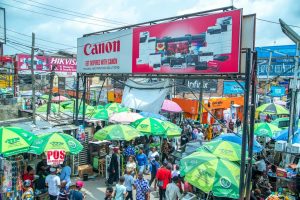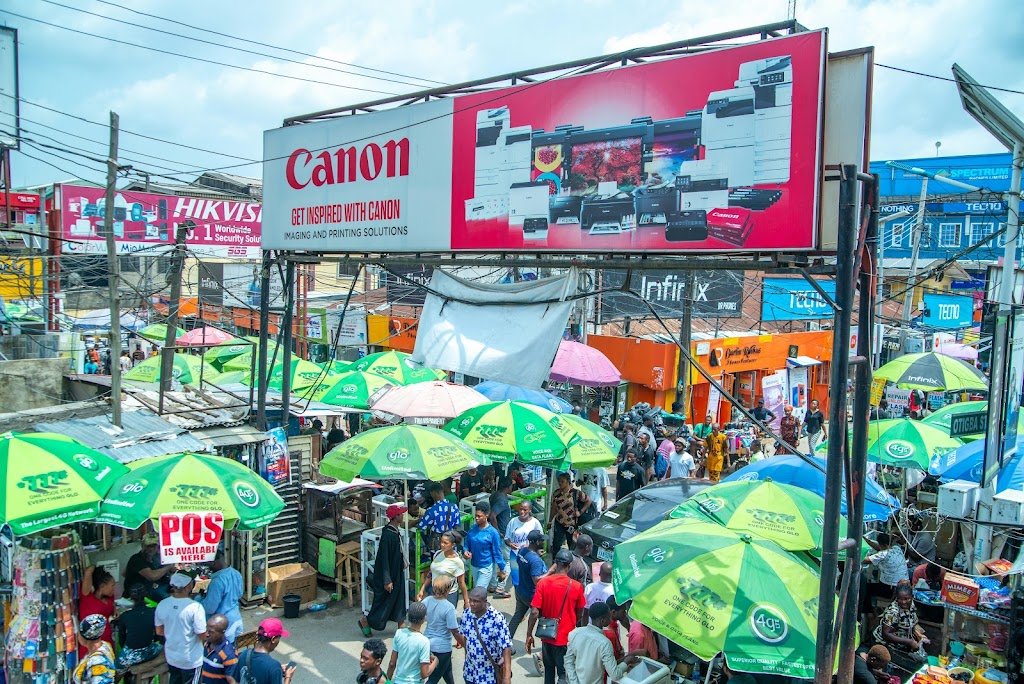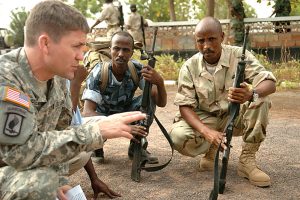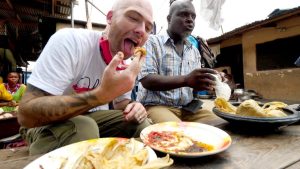 |
| Photo by David Iloba: A large crowd of people at an outdoor market in Lagos, Nigeria |
Author: Precious Chibuike Ukaegbu
There is a famous saying in the Igbo land which goes thus “Akụ ruo ụlọ, a mara onye kpara ya,” which loosely translates to “When wealth gets home, people will know who made it.”
The Igbo people of South Eastern Nigeria are famous for being one of the wealthiest tribes in Nigeria and arguably among the top wealthiest tribes across Africa. Conversations around the wealth and successes of the Igbos remain a topic of interest across many social and political spaces in Nigeria and beyond—this is also due to the aftermath of the Nigeria-Biafra Civil War, which lasted from 6 July 1967 to 15 January 1970.
The Civil War played a monumental role for many Igbo people and in many Igbo communities across the country, leaving thousands of them impoverished and homeless as several towns bore the horror of the war. It has been over fifty years postbellum, however, and the Igbos continue to thrive across boards, rebuilding their respective communities, one brick at a time, and solidly representing a sense of inspiration for many cultures and communities globally.
In a bid to understand the resilience and unwavering commitment to success that many Igbo communities and people share in tandem, many often credit the wealth and success of the Igbos to their unique business sense—a stereotype attributed to the Igbos for the longest. Over the years, the Igbos have created a system that ensures the dynamics of growth and wealth creation through what is known as the Igbo Apprenticeship System.
The Igbo apprenticeship system, also known as Igba-Odibo, Igba-Boi, Imu-Ahia, or Imu-Oru, involves indentured arrangements between parties to foster burgeoning entrepreneurial communities within the Igbos. Its purpose was and continues to be to promote economic growth and stability, as well as long-term livelihoods, by financing and investing in human resources through vocational training.
In simpler terms, this system is a fascinating paradigm of enterprise development in which an entrepreneur (also known as an Oga) takes on an apprentice (commonly known as Nwa-boi or Boi-Boi) and teaches them the fundamentals of a specific trade over a set period. The Igbo apprenticeship system has three phases, which are as follows:
1. The Sourcing Phase
2. The Incubation Phase
3. The Settlement Phase
In the sourcing phase, the entrepreneur selects a young person who provides him with business assistance. Specifications of the apprenticeship—particularly the duration of the training (which conventionally is between 2 and 7 years)—are deliberated on. Once there is an agreement, the incubation stage begins.
The incubation phase is when the apprenticeship training officially starts. Typically, most apprentices live with their bosses during their training. They learn about the business’ practical components, such as sales and marketing, customer interactions, and financial management. In addition, essential principles and ethics like responsibility, accountability, and honesty. The apprentice learns the practical aspects of business rather than merely the theoretical language offered in most formal business schools.
The settlement phase marks the end of the apprenticeship. Financial support is given to the apprentice to create a new business after the terms and conditions of the apprenticeship agreement have been satisfied, and the trainee becomes a new competitor within the same jurisdiction.
The Igbo apprenticeship system is a perpetual cycle—when one apprentice completes training, another begins. And this demonstrates the guiding philosophy of the Igbo people: “onye aghala nwanne ya.” Never leave a sibling behind!
Think of it this way: a man enters a business field and gains market share. Then, one day, he ingeniously decides to give up market share, creating competition for himself. And while he does so, he ensures that he provides capital for his competitors to prosper. So, somehow, a system emerges in which everyone is doing well without any warped imbalance.
Many Igbo people owe their success to the efficacy of the apprenticeship system—so much so that Forbes Africa cited Nnewi, Anambra, in Southeastern Nigeria, as one which has produced more naira billionaires than any other town in Nigeria, if not Africa. Cletus Ibeto of the Ibeto Group, Cosmas Maduka of the Coscharis Group, Innocent Chukwuma of the Innoson Group, Chika Okafor of Chicason Industries, and Louis Onwugbenu of Louis Carter Industries, to mention a few, are examples of such men who were once Boi-Boi.
But the big question remains: how do governments replicate such models to drive positive economic change?



